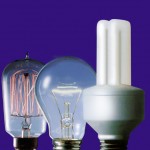 Energy prices have been a hot topic (pardon the pun) for British consumers recently, with the various political leaders pledging to do various things to ensure bills are kept at manageable levels for squeezed customers this winter. Foremost amongst these proposals was that of Labour leader Ed Miliband to freeze energy prices should they win the next general election.
Energy prices have been a hot topic (pardon the pun) for British consumers recently, with the various political leaders pledging to do various things to ensure bills are kept at manageable levels for squeezed customers this winter. Foremost amongst these proposals was that of Labour leader Ed Miliband to freeze energy prices should they win the next general election.
It’s perhaps not surprising that governments and politicians are seeking such top down measures of influencing energy consumption, but a study from Keele university suggests an alternative approach could be more effective.
They focused their efforts on low-cost and low-tech approaches to saving energy. The Reducing Energy Consumption through Community Knowledge Networks (RECCKN) project team worked with households in Shrewsbury and Newcastle under Lyme for two years in an attempt to unearth the best ways to reduce their energy bills.
They found that consumers are generally sceptical of the energy companies, and as such are not likely to accept advice on energy saving that comes from them, instead preferring to take advice from friends, families and local organisations in the third sector.
The most effective method of communicating that advice was also interesting, with face to face discussions proving most effective, as consumers were generally overwhelmed by the barrage of offers and information that was sent to them via written communication. What’s more, face to face conversations allowed interaction and for questions to be asked.
This level of engagement proved crucial, as despite the strong instincts most people had for reducing energy consumption, few had the confidence to follow those instincts, instead often deferring to so called experts.
The researchers said that, ‘The key to releasing this potential lies in making energy use ‘discussable’ at convivial meetings where citizens can exchange tips and knowledge. As well as producing good energy outcomes, we found that these meetings increase confidence and the motivation to save energy, empower citizens, and increase community capacity.”
One participant commented, “A face-to-face sharing of tips and ideas is really useful – there is something about being in a group and sharing the information”.
The full findings from the research are soon to be published in a paper for the journal Energy Policy. It is clear that lessons can be learnt by policy makers however, in particular in how they can make energy saving a more social activity. Efforts have been undertaken previously to improve recycling rates by gamifying them, with services such as RecycleBank applying the best of social and gamification to improve recycling rates.
Perhaps similar endeavours can be attempted to reduce our energy bills. In the meantime, have a look at the video produced by the RECCKN team, where participants share their thoughts.
Energy saving: it’s a social thing from PublicSpace video on Vimeo.
I wonder if similar boosts occur if people talk virtually as well as face to face?
Whilst not in this setting, there is plenty of examples of online communities promoting positive behavioural changes, so I see no reason why it wouldn't work.
I wonder why there aren't any of these gamified things in the UK? I can't recall seeing anything like that, be it for recycling more or reducing energy consumption.
It is odd isn't it? I suppose a cynic might say that there isn't much incentive for energy companies to have us using less energy.
Just found this. Nice summary. re virtual: most participants were already using online sources of information. There was a lot added by face-to-face contact because of the opportunity to look at things (bills, insulation, EDM, etc.) together, exchange ideas and practical experience with people maybe in similar houses or similar circumstances, develop trust and the confidence to take it further with experts or a wider community, and make the whole thing into positive social contact too.
Thanks for stopping by Simon and providing an update. I read a stat recently suggesting that just 20% of people have switched energy suppliers in the past few years. It was fascinating, especially considering the publicity the price rises have had recently. Did you find that community involvement helped with that kind of thing too?